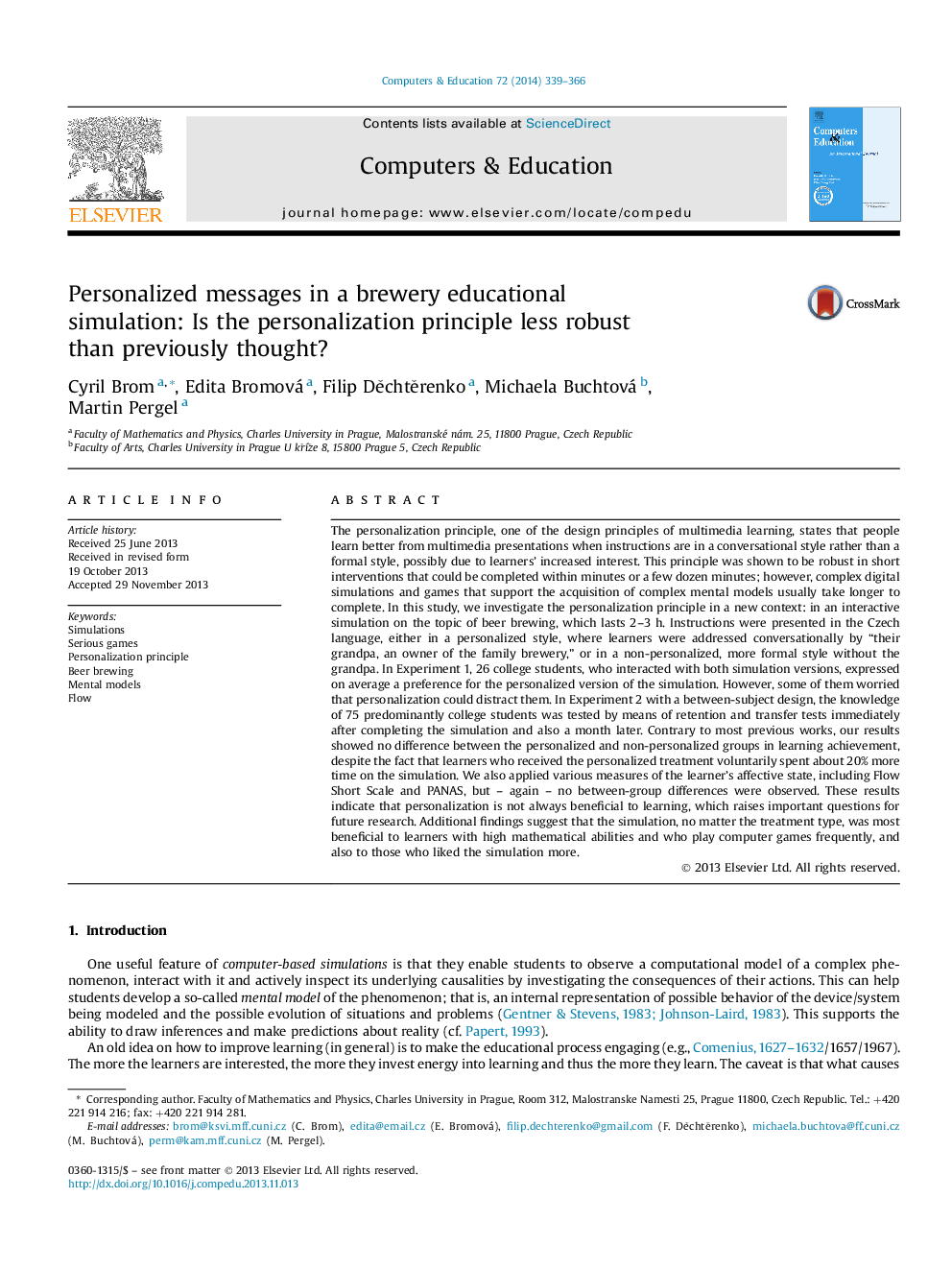| کد مقاله | کد نشریه | سال انتشار | مقاله انگلیسی | نسخه تمام متن |
|---|---|---|---|---|
| 6835320 | 618187 | 2014 | 28 صفحه PDF | دانلود رایگان |
عنوان انگلیسی مقاله ISI
Personalized messages in a brewery educational simulation: Is the personalization principle less robust than previously thought?
ترجمه فارسی عنوان
پیام های شخصی شده در شبیه سازی آموزش آبجوسازی: آیا اصل شخصی سازی کمتر از آنچه قبلا تصور می شد، است؟
دانلود مقاله + سفارش ترجمه
دانلود مقاله ISI انگلیسی
رایگان برای ایرانیان
کلمات کلیدی
شبیه سازی، بازی های جدی اصل شخصی سازی، آبجو مدل های ذهنی، جریان،
موضوعات مرتبط
علوم انسانی و اجتماعی
علوم اجتماعی
آموزش
چکیده انگلیسی
The personalization principle, one of the design principles of multimedia learning, states that people learn better from multimedia presentations when instructions are in a conversational style rather than a formal style, possibly due to learners' increased interest. This principle was shown to be robust in short interventions that could be completed within minutes or a few dozen minutes; however, complex digital simulations and games that support the acquisition of complex mental models usually take longer to complete. In this study, we investigate the personalization principle in a new context: in an interactive simulation on the topic of beer brewing, which lasts 2-3Â h. Instructions were presented in the Czech language, either in a personalized style, where learners were addressed conversationally by “their grandpa, an owner of the family brewery,” or in a non-personalized, more formal style without the grandpa. In Experiment 1, 26 college students, who interacted with both simulation versions, expressed on average a preference for the personalized version of the simulation. However, some of them worried that personalization could distract them. In Experiment 2 with a between-subject design, the knowledge of 75 predominantly college students was tested by means of retention and transfer tests immediately after completing the simulation and also a month later. Contrary to most previous works, our results showed no difference between the personalized and non-personalized groups in learning achievement, despite the fact that learners who received the personalized treatment voluntarily spent about 20% more time on the simulation. We also applied various measures of the learner's affective state, including Flow Short Scale and PANAS, but - again - no between-group differences were observed. These results indicate that personalization is not always beneficial to learning, which raises important questions for future research. Additional findings suggest that the simulation, no matter the treatment type, was most beneficial to learners with high mathematical abilities and who play computer games frequently, and also to those who liked the simulation more.
ناشر
Database: Elsevier - ScienceDirect (ساینس دایرکت)
Journal: Computers & Education - Volume 72, March 2014, Pages 339-366
Journal: Computers & Education - Volume 72, March 2014, Pages 339-366
نویسندگان
Cyril Brom, Edita Bromová, Filip DÄchtÄrenko, Michaela Buchtová, Martin Pergel,
